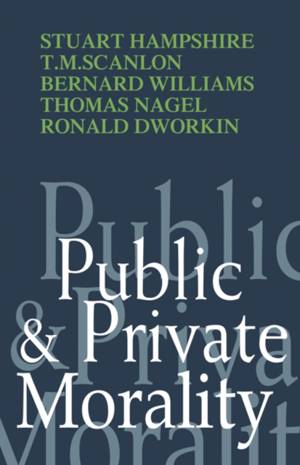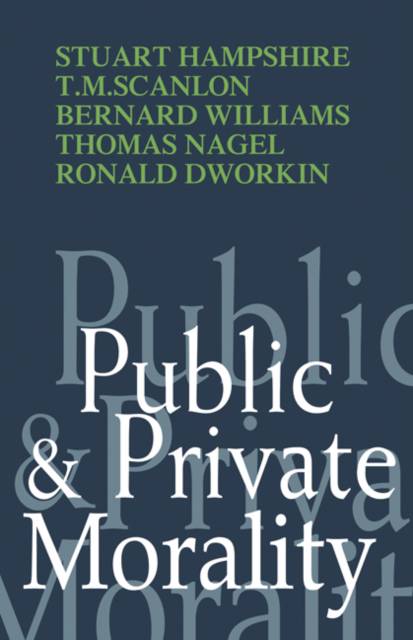
- Retrait gratuit dans votre magasin Club
- 7.000.000 titres dans notre catalogue
- Payer en toute sécurité
- Toujours un magasin près de chez vous
- Retrait gratuit dans votre magasin Club
- 7.000.0000 titres dans notre catalogue
- Payer en toute sécurité
- Toujours un magasin près de chez vous
Description
The problem of 'dirty hands' in politics was posed most strikingly by Machiavelli. It has re-emerged this century in a pressing and, to some extent, a new form, in connection with the two World Wars and more recently the Vietnam War, where the political decisions and the destruction, and risks of destruction, have been of a scale and character not previously experienced.
The contributors to this volume examine the background to this problem in moral and political theory. Stuart Hampshire, Bernard Williams and Thomas Nagel consider the continuities and discontinuities between public and private morality and the modes of rationality that might be appropriate to each. T. M. Scanlon and Ronald Dworkin consider more generally the type of moral claim on which political arguments turn; they look for a rational foundation for contemporary liberal attitudes.
The volume will be of interest to students of political theory and ethics, and to anyone concerned with or about political issues and political life.
Spécifications
Parties prenantes
- Auteur(s) :
- Editeur:
Contenu
- Nombre de pages :
- 152
- Langue:
- Anglais
Caractéristiques
- EAN:
- 9780521293525
- Date de parution :
- 31-10-78
- Format:
- Livre broché
- Format numérique:
- Trade paperback (VS)
- Dimensions :
- 141 mm x 215 mm
- Poids :
- 217 g

Les avis
Nous publions uniquement les avis qui respectent les conditions requises. Consultez nos conditions pour les avis.






